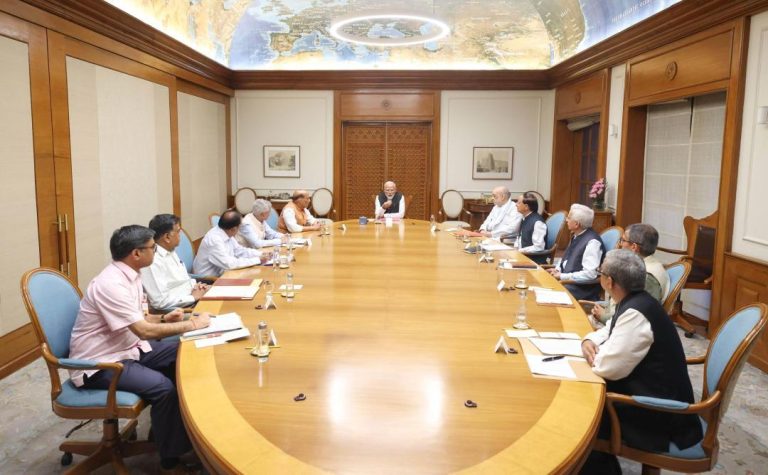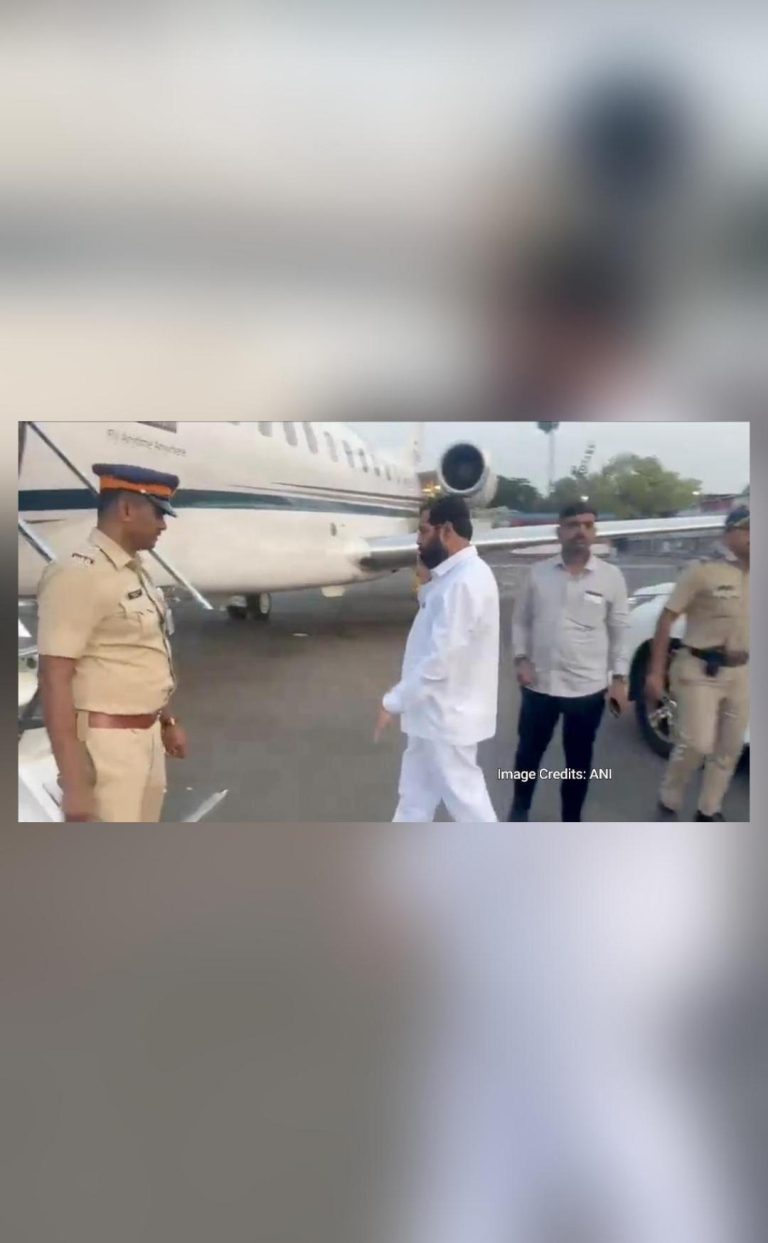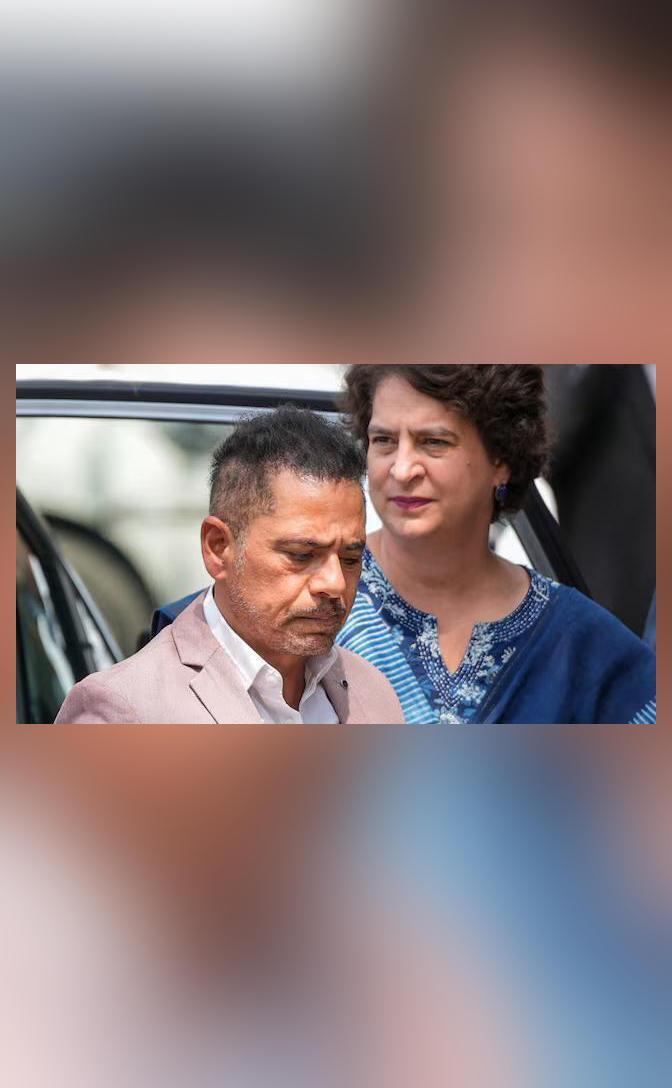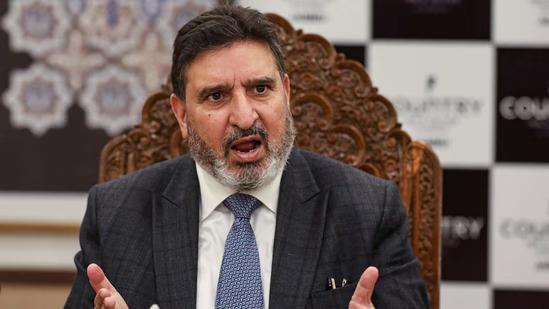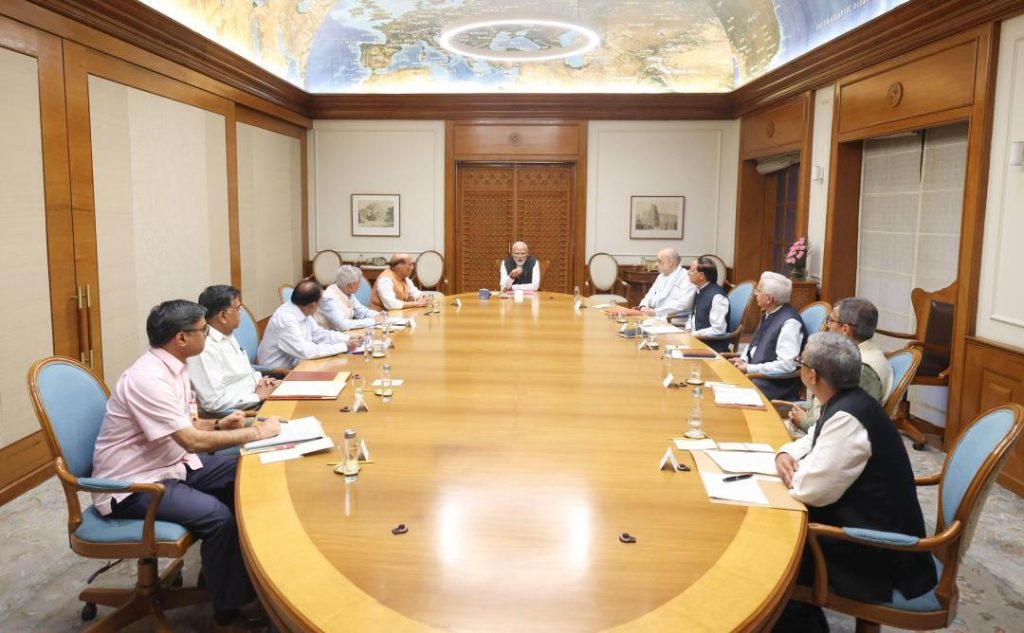
Top Level Meeting on Security Begins at PM Modi’s Residence, Day After J&K Terror Attack
In the wake of a ghastly terror attack in Jammu and Kashmir’s Pahalgam that claimed the lives of at least 26 tourists, a high-level meeting of the Cabinet Committee on Security (CCS) began on Wednesday at the residence of Prime Minister Narendra Modi in Delhi. The meeting is a significant development in the aftermath of the terror attack, which has sent shockwaves across the country.
The CCS meeting, which is a critical forum for reviewing national security issues, was attended by key ministers and officials, including Home Minister Amit Shah, Defence Minister Rajnath Singh, and National Security Adviser (NSA) Ajit Doval. The meeting is likely to deliberate on the steps needed to prevent such attacks in the future and to take punitive action against those responsible for the terror strike.
The terror attack in Pahalgam, which occurred on Tuesday, was carried out by terrorists who ambushed a bus carrying tourists from Gujarat to Amarnath. The attack was one of the deadliest in recent years, and it has left the nation in a state of shock and outrage.
The CCS meeting comes at a time when the country is still reeling from the aftermath of the terror attack. The government has already taken several steps to ensure the security of the Valley, including deploying additional troops and increasing surveillance in the region.
Home Minister Amit Shah, who returned from Jammu and Kashmir this evening, is likely to brief the CCS meeting on the current situation in the Valley and the measures being taken to ensure the safety and security of citizens. Shah’s visit to Jammu and Kashmir comes at a time when the Valley is still recovering from the aftermath of the terror attack.
Defence Minister Rajnath Singh, who is also a member of the CCS, is likely to brief the meeting on the military operations being carried out in the region to track down and neutralize the terrorists responsible for the attack. Singh has already spoken to the armed forces and has asked them to intensify their operations to eliminate the terrorists.
NSA Ajit Doval, who is also a member of the CCS, is likely to provide a detailed briefing on the intelligence inputs and the security measures being taken to prevent such attacks in the future. Doval has been at the forefront of India’s efforts to counter terrorism, and his inputs are likely to be crucial in shaping the government’s response to the terror attack.
The CCS meeting is a critical forum for reviewing national security issues, and it is likely to provide a platform for the government to discuss and decide on the next course of action. The meeting is also likely to involve a discussion on the security agencies’ response to the terror attack and the measures being taken to prevent such attacks in the future.
In recent years, the CCS has played a critical role in shaping India’s national security policy. The committee, which is chaired by the Prime Minister, is responsible for reviewing national security issues and providing policy guidance to the government.
The CCS meeting comes at a time when India is facing several security challenges, including the threat from cross-border terrorism and the rise of extremist groups within the country. The meeting is likely to provide a platform for the government to discuss these issues and to take punitive action against those responsible for the terror attack.
In conclusion, the CCS meeting at PM Modi’s residence is a significant development in the aftermath of the terror attack in Jammu and Kashmir’s Pahalgam. The meeting is a critical forum for reviewing national security issues, and it is likely to provide a platform for the government to discuss and decide on the next course of action. The meeting is also likely to involve a discussion on the security agencies’ response to the terror attack and the measures being taken to prevent such attacks in the future.
Source: https://x.com/airnewsalerts/status/1915027030753808585
